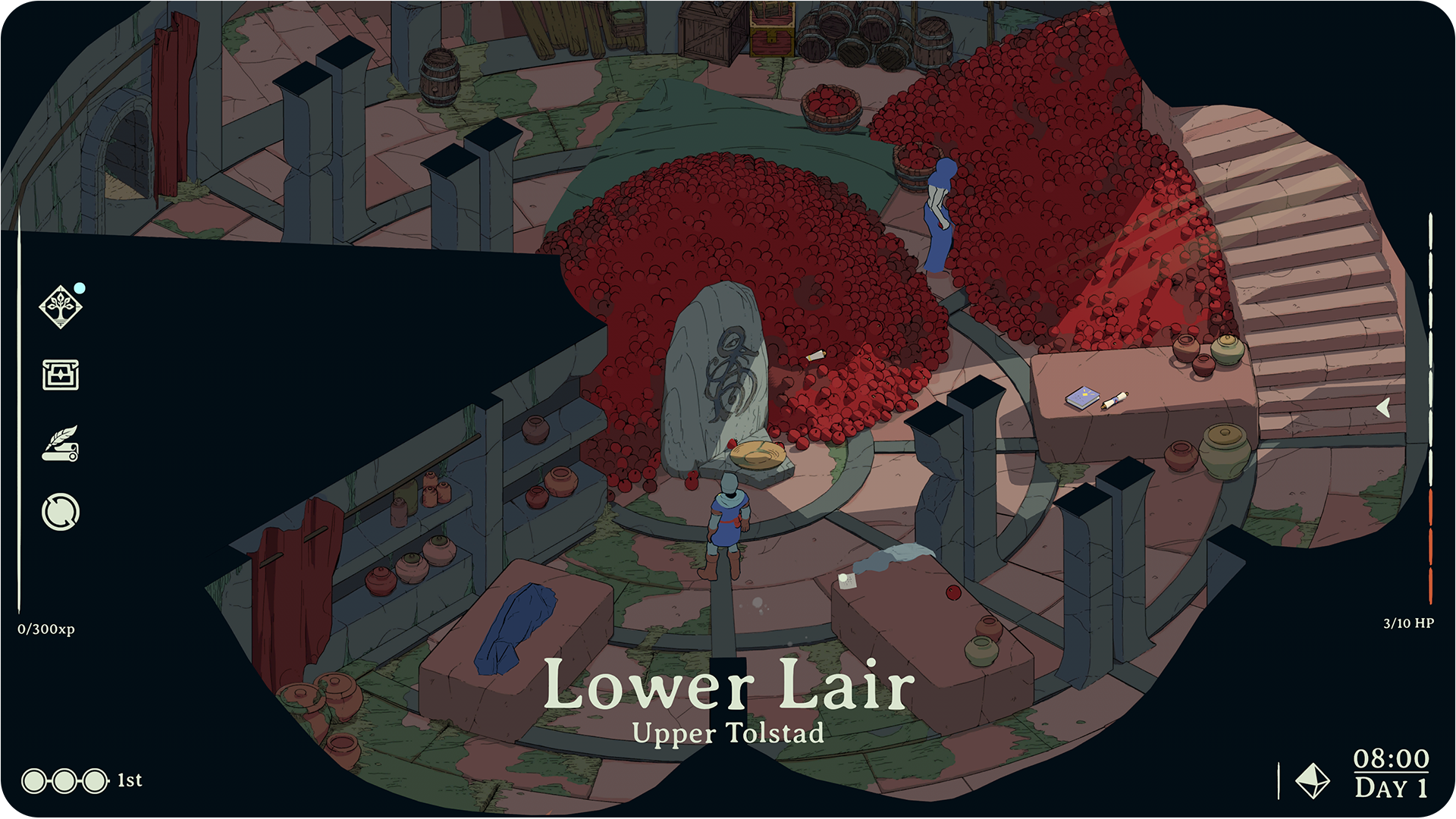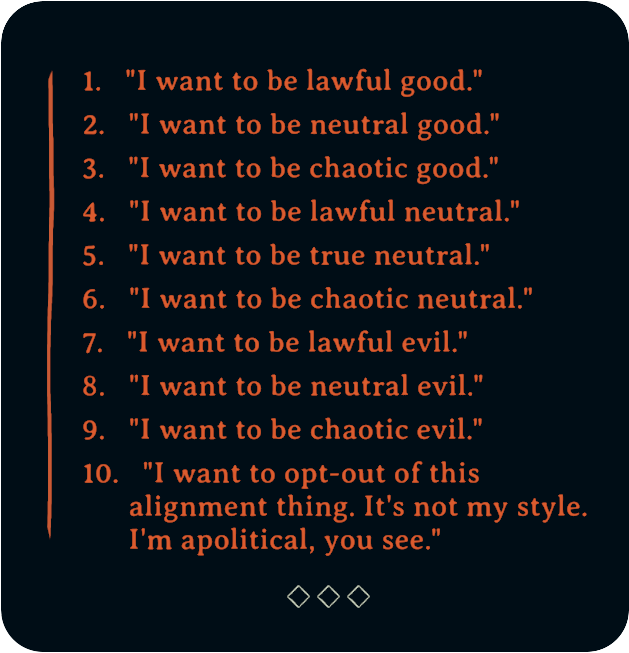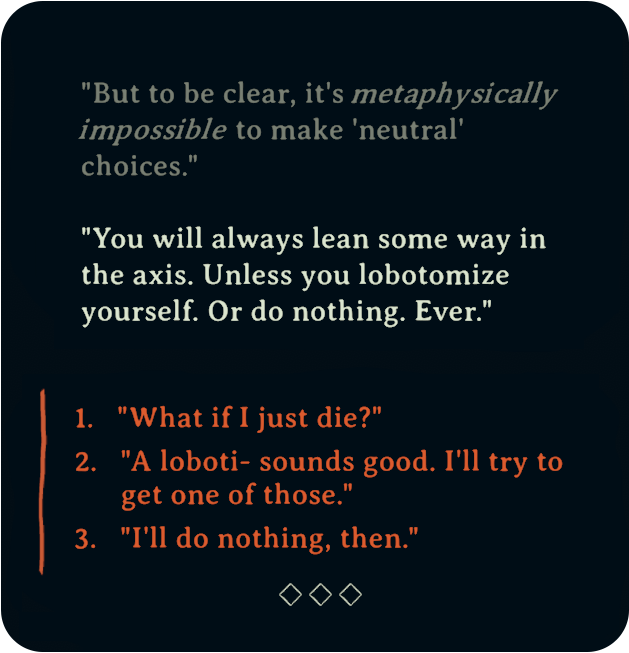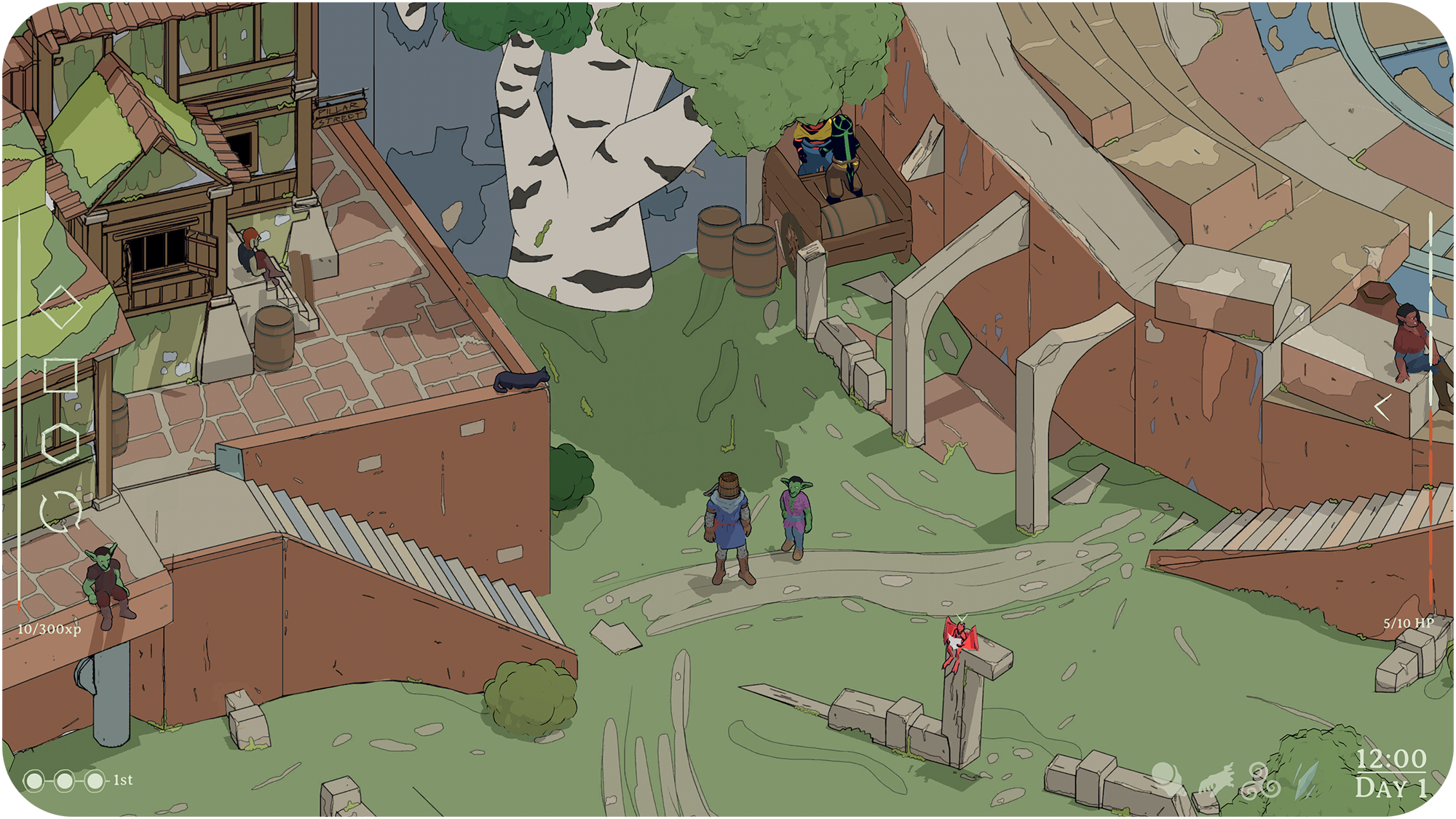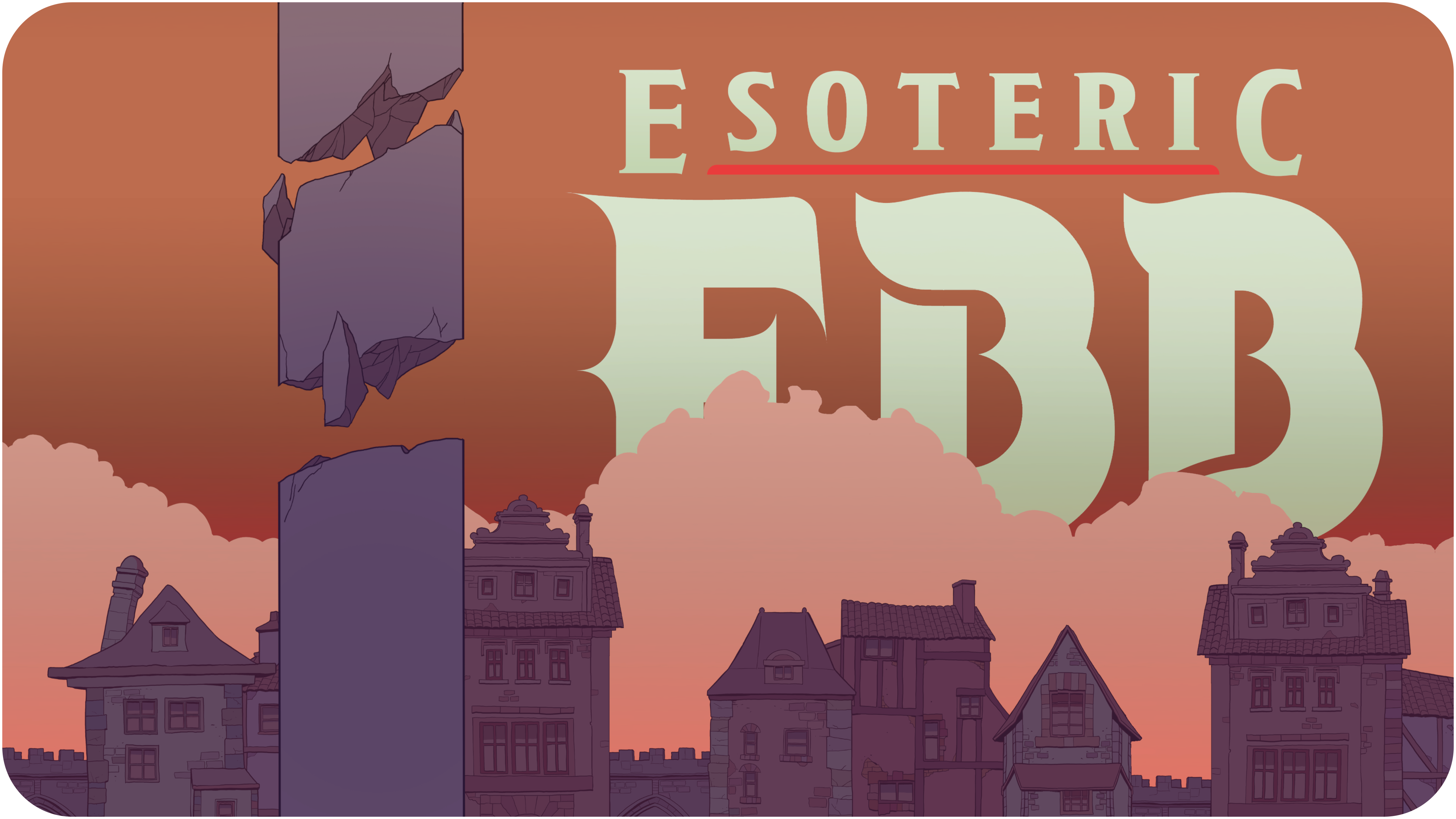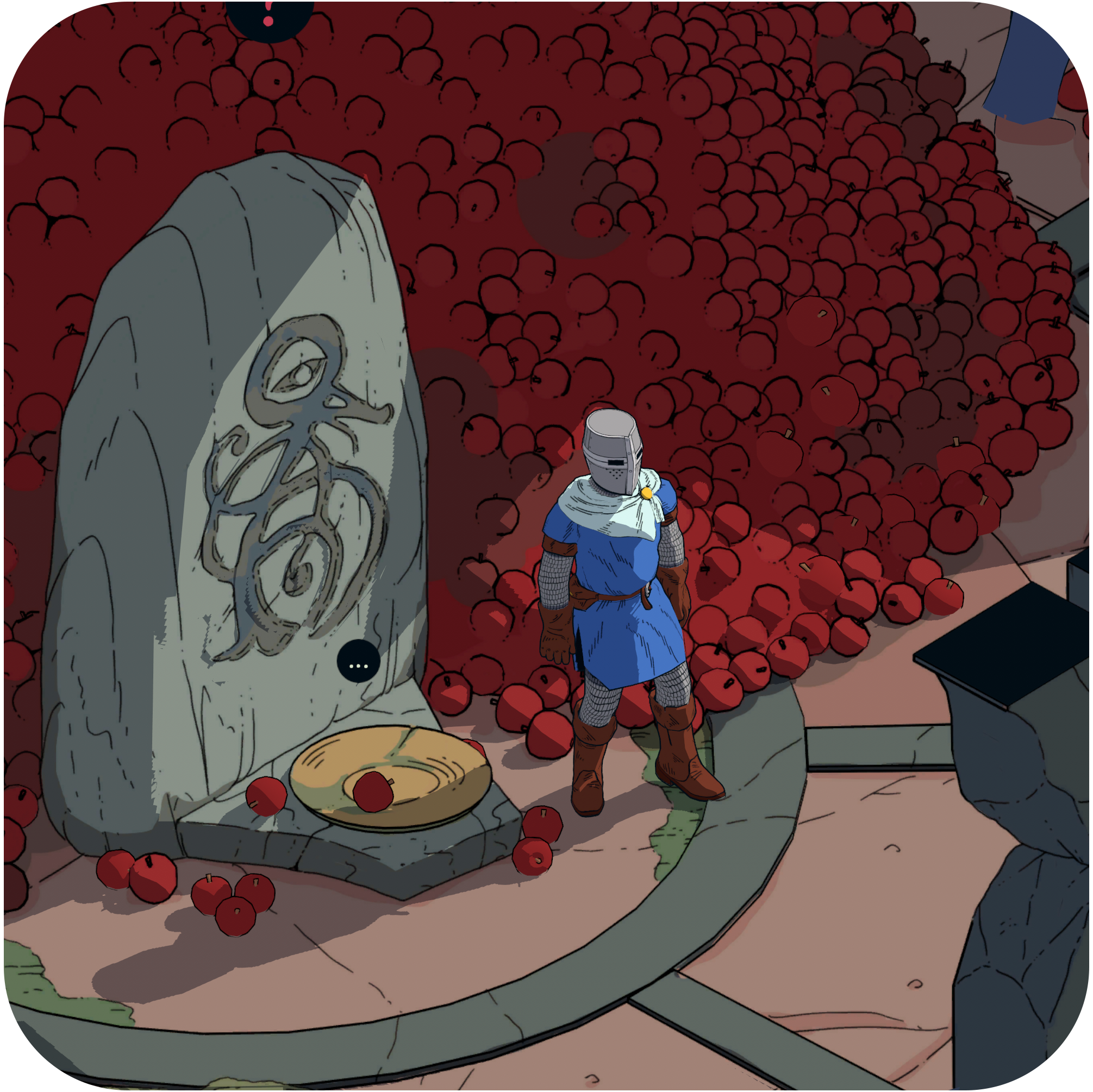An Esoteric Campaign - Alignment
You can start by asking:
why even use alignments
?
In modern TTRPGs
, the mechanics of alignment (or the like) are more or less fading away. I don't have any statistics on it, but I'd wager that very few people actually play with them these days. Partly I'd say due to a moralist argument of anti-determinism - that sentient beings are not born to be good or evil or anything else, and that we have full culpability over our own actions. And also partly because alignment can be really, really
annoying
.
Not as annoying as these apples, though.
By default, a 5e setting has an omnipotent force that determines each creature's placement on a matrix: good to evil and lawful to chaotic. Usually a player only encounters this (if ever) when making a character. You choose where you're at on the matrix. An argument for alignment is that it's a tool to help craft an interesting personality, or understand what kind of actions a character would take in any given situation. Do you follow the laws of the land, or do you break them? Do you protect the innocent with your life, or are you rude to people in the service industry? Just glance at your alignment, and you'll know.
But what happens when we make things more of a gray zone? What happens when multiple laws contradict each other? When ostensibly evil actions can lead to a greater good? All the classic examples have been debated to death, but I've never seemed to be very happy with any answers. Mainly because it's a flawed discussion to begin with - because it all depends on that previously mentioned omnipotent force.
You know,
the DM
.
If your fantasy world has actual objective alignments, then that means there's an objective truth. Whatever the DM says,
is
good. If your DM has a really strange world view, then you can end up with some very wacky alignment. So in my eyes, the number one reason why alignment just doesn't work in practical play, is that it requires the DM to have an incredibly strong grip on their beliefs. And, of course, the fact that every single one of your players will probably disagree with them at some point. That means I don't use alignment in Ebb, right?
Oh no, I do. I use alignment
a lot
. Mainly because I find it absolutely fascinating.
Um, I'll have a lawful good, please. Thanks.
In the demo
you can see characters' alignments on their sheets, by using the
Behold
feature. Beholding is a silly mechanic, that essentially allows you to take a peek on the DM notes. It feels a bit like a 4th wall break initially, but you can imagine it as an
esoteric vibe
that the cleric taps into. You get a bunch of info when Beholding, including tips on how to deal with the character, some backstory hints, ability score distribution, level/backstory, and of course, their alignment. But when you discover the alignment of a character, it doesn't really mean anything other than where this character lands on the matrix - a matrix used in this fantasy world of JOR. A matrix determined by some mad wizard a couple of thousand years ago, unlike the usual divine judgement. So how can you learn more about the definition of good and evil in Esoteric Ebb? Do you have to go on some deep, internal journey? Maybe seek spiritual enlightenment?
No. You go talk to a scholar, obviously! Ebb is set during an age that comes right after a, more or less, technological revolution. There's been a ton of research on esoteric events and effects around the Coast, and in-game you can learn more about the practical functions and philosophical implications of alignments by finding an expert on the subject. As per usual in Ebb, you get to hold a very strange conversation and ask wildly inappropriate questions.
Find out more by playing the game, eventually.
Thank you for following the development of Esoteric Ebb!
The pieces are very much falling into place here. I'm working with some great artists to bring a great visual overhaul to the game, and we're continuing to drop breadcrumbs on
social media and on the
official Discord.
We'll see how many updates I'll be able to write in the coming months, since I've got
a lot
of writing to get done. But man, it's exciting times. Last week I wrote about hugging a skeleton to death, and next week I'll be making a scene where you feed a steak to a magical house. Fun stuff.
-Christoffer Bodegård

























